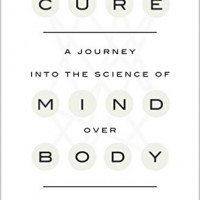
Antioxidants are better-acquired through food than pills.
Antioxidants are now an iconic example of premature hype making its way into marketing and the public consciousness long before the science is adequately understood. There are multiple lessons to be learned in this story, and a new study just emphasizes those lessons further.
A brief history of antioxidants
One of the unavoidable consequences of metabolism (burning food for energy) is the creation of oxygen free radicals, or reactive oxygen species (ROS). These are molecules that are highly reactive. They essentially contain oxygen with an extra electron, which can react with another molecule, breaking bonds and causing damage.
As you might expect, the body has natural antioxidants which react with ROS to form benign molecules.
In the 1990s it became increasingly apparent that oxidative stress was playing an important role in cell damage, even sometimes triggering apoptosis, or programmed cell death. Many degenerative diseases, like Alzheimer’s disease, were shown to be driven in part by oxidative stress. In addition, it seemed that ROS play a role in aging.
The implications of this realization are clear – if oxidative stress is causing aging and disease, then antioxidants should help slow aging and disease progression, maybe even stop it. This was a reasonable hypothesis in the 1990s. A quarter of a century later, however, we realize that the story is much more complicated.
Before scientists could even follow up on their hypotheses, however, the supplement industry seized upon the notion of antioxidants. The prospect of slowing aging was a perfect match for the typical hype of the supplement industry, and the fact there was actual science to back up those claims (even if it was preliminary without any clinical findings to back them up) sweetened the deal.
Marketing of the alleged health benefits of antioxidants has been at saturation levels ever since. The result is that antioxidants have a powerful health halo, one that they did not earn through scientific study.
Reality sets in
While the supplement industry was very satisfied with the preliminary science of the 1990s, scientists did not stop their investigations. It was soon discovered that ROS also play many positive and important roles in the body. The immune system uses ROS to attack and destroy bacteria or cancer cells, for example. They are also important signaling molecules, telling cells to ramp up protective pathways.
Further, organisms already possess powerful antioxidants (more powerful than any supplement) that keep the ROS in balance. Evolution is very efficient at optimizing systems. It therefore makes sense that we would have evolved an optimal balance between ROS and antioxidants. If there were a clear health benefit to additional antioxidants, our bodies would just make more.
We do, however, need some exogenous antioxidants (like vitamin C and vitamin E). They are a part of the system too, and work with the endogenous antioxidants to keep the system in balance. As with supplements in general, it makes sense to make sure one is getting sufficient nutrients to avoid deficiency. However, there is no rationale for taking large doses, or thinking that more is always better.
In retrospect it was naïve to think that taking extra exogenous antioxidants would make the system function better, even to the point of slowing aging. It was reasonable to think that in certain disease states the balance of ROS and antioxidants was abnormal, and this could be fixed with exogenous antioxidants.
There are some specific diseases where this is the case, such as one form of familial ALS, which is a genetic mutation in superoxide dismutase, an important antioxidant. However, even this story is more complex as the mutated protein not only does not do its job as an antioxidant but is also directly toxic to proteins.
A recent review of antioxidants concluded:
The balance between oxidation and antioxidation (redox balance) is critical in maintaining a healthy biological system. In cellular redox state, the double-edged effect does not only concern ROS, but also antioxidants. Physiologic doses of exogenous antioxidants are required to maintain or re-establish redox homeostasis. However, high doses of exogenous antioxidants may disrupt redox balance.
In other words – eat your fruits and vegetables, but don’t bother with supplements.
The new study
With this background, a recent study published in Nature [PDF, full article temporarily available here] concerning antioxidants and metastatic cancer should not be a surprise.
The study is based on the observation that with solid tumors, like melanoma, there is frequent dissemination of cancer cells through the blood (metastasis) but these cells are very inefficient at establishing a metastatic tumor. One reason for this is the immune system using ROS to essentially kill metastatic cells before they can be established. They found that cancer cells that do establish tumors tend to have mutations that make them resistant to oxidative stress.
Most relevant to this topic, however, they found that in mice exogenous antioxidants promoted distant metastasis. This suggests that if you have cancer and you take antioxidants, your chance of developing metastases is greater. Keep in mind most solid tumor are usually present for 2-3 years before they are diagnosed, so the risk potentially exists even for those who have not yet been diagnosed with cancer.
This has alarming implications given the popularity of antioxidant supplements.
Lessons
To emphasize the lessons from this iconic story of supplement industry misadventure:
- The body is complex, and we should be skeptical of any simplistic notions of the effects of our interventions
- We need to respect the natural homeostatic mechanisms that evolved and not think that we can easily improve them
- More is not always better
- Be skeptical of clinical claims based on pre-clinical or basic science; until we study an intervention’s net health effects, we cannot really know what they will be
- We have yet more evidence that for the average person the best advice is to eat a well-rounded diet with plenty of fruits and vegetables, but extra supplements (and especially high dose supplements) are likely unnecessary and even counterproductive.

